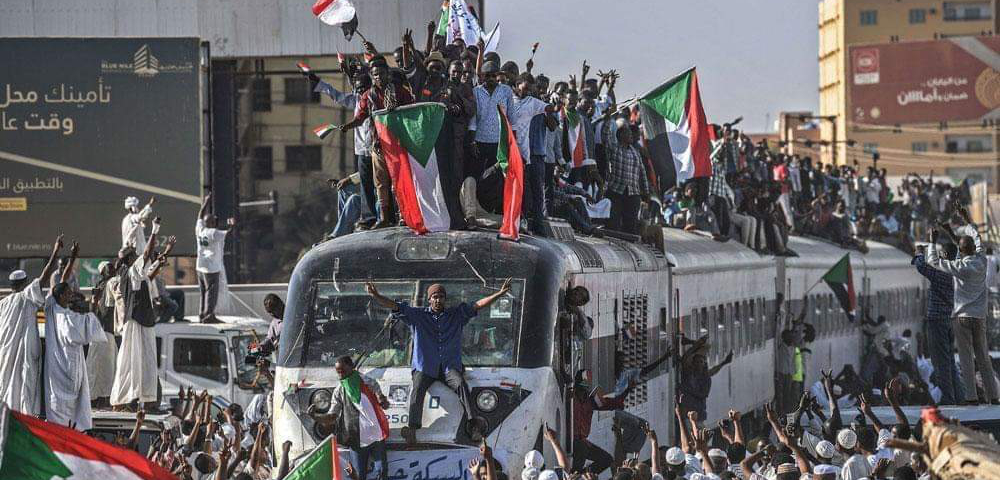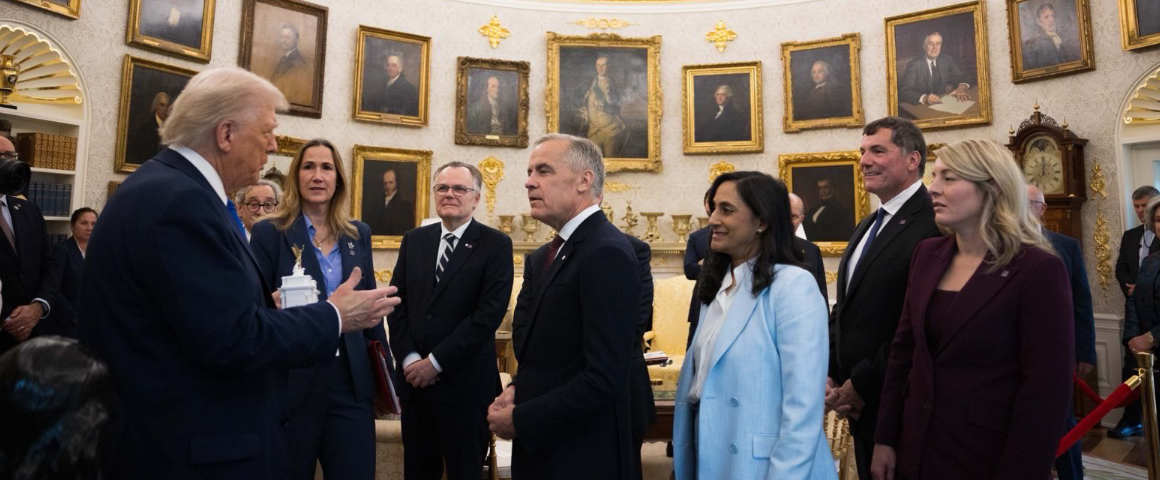Exclusive interview with the Sudanese Communist Party
Sudan drew global attention throughout 2019, as the people rose up against the corrupt and repressive regime of Omar al-Bashir. The uprising was celebrated for opening a transition to democracy and secularism, but that transition is far from complete. People’s Voice interviewed Elfadil Elhashmi, an activist in the Sudanese Communist Party, to discuss the ongoing struggle. The following is the first of that two-part interview.
People’s Voice: The Sudanese people won an important victory in April 2019, when they forced Omar al-Bashir from the presidency. Could you give us some background to that struggle?
Elfadil Elhashmi: The first phase of the Sudanese December 2018 Revolution lasted more than five months. Back in April 2019, I said what was going on in Sudan is a revolution in the making; I still argue that its heated tanks will keep boiling. It is an unfinished process in which the political ruling strata have been defeated but the old system, the deep security and militia State and economically deeply rooted system is still hanging on to its resources. The Old is half alive, and the New has yet to emerge from the womb of the Old.
The post-colonial national liberation project of equitable development and social justice never came to fruition following independence in 1956. The bloody military regime of political Islam, which was a dependent comprador in close alliance with regional and international imperialists, gave heavy blows to the grassroots forces of democratic transformation in Sudan. The regime adopted the prescriptions of the World Bank (WB) and International Monetary Fund (IMF) of privatization of successful public sector entities and austerity measures of cutting subsidies to real producers and basic commodities. Expenditures on health, education and basic infrastructure were also seriously cut, and there was privatization of the Gezira irrigation project and the transportation sector. Land-grabbing was widespread, resources were plundered, and the military generals have been involved in embezzling public funds and tax exemptions.
The absolute injustice necessitated an absolute ideology of “Islamization” or political Islam; hence the space of political and class struggle became brutally fascist. Class, race and religion have been overlapping and seem to explain identity and resources intersectionality that caused long civil wars in the South and currently in Darfur, Nuba Mountains and Blue Nile.
The contemporary paradoxical global sociopolitical mode of production is dominated by parasitic rentier finance capital. This globalization is approaching a new fascist phase in which it is constructing, reinventing and reproducing terrorism, Zionism, monarchies and dictatorships in the developing countries. It also fictitiously pretends to support the discourse of democracy, human rights, anti-terrorism and anti-fanaticism, while in the global South, absolute exploitation and injustice has no other way but to adopt absolute ideologies to continue stealing the resources.
The essence of popular revolutions in the developing countries since the eighteenth century has been anti-colonial and anti-feudal. It has raised popular slogans and demands of grassroots democracy and condemned parasitic capitalism.
When the streets in most big cities exploded in December 2018, a popular body emerged to lead and organize the movement under the slogan of Freedom, Peace and Justice. It was called the Forces of Freedom and Change (FFC). It was formed mainly from political parties and professional organizations and trade unions (medical doctors, engineers, teachers, lawyers, judges, pharmacists, workers etc.) which formed their parallel bodies outside the pro-government legal framework. The December 2018 Revolution was completely a peaceful movement, so the West was shyly obliged to support it although they were a keen ally of the dictatorial political Islam regime.
Revolutions in the periphery have been calling politically for democracy but never lost sight of its class content as they demanded social justice and equitable development, and defined their enemies as parasitic merchant capitalists, rich generals and big landowners.
When the socio-political and economic crisis disabled the system and made it dysfunctional and it became impossible to survive, revolution came about with vanguards emerging from the oppressed, marginalized and disadvantaged sections against centuries’ long surplus extracted through violence (slavery, colonialism, neocolonialism and current global imperialism) and locally led by powerful and privileged strata of ruling classes.
PV: After April 2019, the FFC alliance entered negotiations with the military and negotiated a political agreement with the Transitional Military Council. The Sudanese Communist Party opposed these negotiations and withdrew from the coalition in November 2020. Can you give us more information about political agreement and why the SCP chose to withdraw?
EE: Some parties and professionals in the FFC happened to buy into the so-called “soft landing” introduced by the US through Ambassador Princeton Lyman, a special envoy for Sudan. Soft landing means a negotiated transfer to civilian-military partnership which keeps the existing economic system intact with no legal percussions to the military rulers accused of mass killings. This section of the FFC hijacked the negotiations and welcomed the Transitional Military Council (a de facto Bashir creation) into a power sharing model that has nothing to do with the revolution’s demands.
The Sudanese Communist Party almost single-handedly resisted this reactionary approach and exposed the fallacies of this model to the masses. Such a model has turned into a clear domination by the military council, which issues serious partial decrees and laws about peace and economic issues behind the passive and compliant civilian component of the government. The military component has become a class in itself, owning hundreds of companies that used to belong to the public sector which trade in basic commodities (animal stock, gum Arabic, oil seeds) and has mysterious links to militia smuggling activities, including gold and money laundering.
The SCP withdrew from the FFC coalition in early November 2020 and boycotted participation in the transitional executive government institutions. The main reasons for the Party’s withdrawal from supporting the transitional government can be summarized in the following points:
- The government’s consistent breach of the Constitutional Document signed by the FFC and the consequent fatal mistakes that contradict and reverse the demands of the Revolution.
- Purposefully adopting visions, strategies and tactics that oppose the Revolution demands of deconstructing the old economic and political system.
- Sluggish approach to legally bringing the old system criminals to justice and delaying or refusing to hand over Omar al-Bashir to the International Criminal Court.
- Too slow and malicious process of completing the investigations into the barbaric killings of the peaceful sit-in demonstrators in the Military Headquarters in June 2019.
- Executing the partial and irresponsible Juba Peace Agreement that was single-handedly led, designed and planned by the military generals instead of the Prime Minister.
- The appointment of ministers regardless of competencies and treatment of such privileged positions as war spoils.
Above all, the partnership model with the military, which is in fact handing over power to them, has added to the insult of succumbing to the dictates and prescriptions of the WB and the IMF. Such prescriptions include further privatization of public sector, further opening the economy to international companies, a free exchange rate of the Sudanese pound, and austerity measures which remove subsidies from production of gas, gasoline, medicine, electricity and water.
PV: In the current situation, what is the state of the people’s movement and what are the main sectors and organizations that are propelling that movement forward?
EE: As we speak, the economic situation is worse than before the December 2018 Revolution. The neoliberal strategies and policies implemented by the transitional government (military and civilian components), under pressure from the WB and IMF and despite the demands of the masses, have resulted in high inflationary prices of basic commodities and medicine and a devaluated currency. The standards of living are miserable, and more than 95 percent of the people are under the poverty line.
The SCP is in the heart of the forces resisting many policies and laws that are not in line with the signed Constitutional Document. The workers and trade unions are fighting to pass a new trade unions law that ensures they are independent and democratic. A new oppressive security law has been put forward by the transitional government, as well as a new privatization law which liquidates public sector entities under the disguise of a partnership between the private and public sector.
Given the actual several breach of the Constitutional Document, the SCP has recently announced a slogan for “toppling the current transitional government” and started to build up a front that will continue the momentum of the revolution. The political forces which agree to topple the transitional government and move forward to complete the demands of the Revolution include the Sudanese Communist Party and a few other parties, the forces of the Resistance Committees that are formed in all cities, one section of the Professionals’ Assembly (which split), the Martyrs Families groups and some mainly youth members of the two main traditional parties.
Next: Revolution, Imperialism and Solidarity
[hr gap=”10″]
Get People’s Voice delivered to your door or inbox!
If you found this article useful, please consider subscribing to People’s Voice.
We are 100% reader-supported, with no corporate or government funding.




